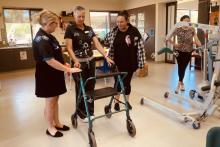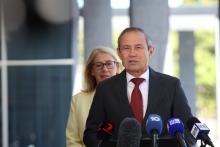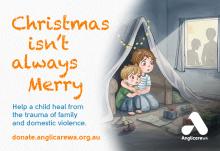“I believe we can end homelessness and this is the way to do it,” Anglicare WA housing coordinator Nick Mathieson says about the Advance to Zero initiative.


“I believe we can end homelessness and this is the way to do it,” Anglicare WA housing coordinator Nick Mathieson says about the Advance to Zero initiative.
The key objectives of Homelessness Week, running from August 4 to 10, is to raise awareness and advocate for solutions, with particular emphasis on prevention.
The Advance to Zero initiative model being picked up across Australia aims to consistently house more people experiencing homelessness than the number of people entering homelessness, to eventually achieve the target of ‘functional zero’.
The collaborative approach focuses on building a coordinated community response to homelessness, underpinned by real-time data via a By-Name List.
“That’s the most effective system-based model for change we’ve probably ever seen because it really does focus on building a coordinated community response to homelessness,” Mr Mathieson said.
“Through shared accountability, we can identify gaps, test solutions and improve performance over time.”
In Western Australia, the Mandurah Zero Project and Rockingham including Kwinana Zero Project were designed with this initiative methodology to contribute to a broader, data-driven effort to end homelessness.
Anglicare WA serves as the ‘backbone lead agency’ for both Zero projects, providing strategic leadership and service coordination.
“We lead the Rough Sleepers Coordination Group, which brings services together to talk about individuals experiencing homelessness from each area that we feel need to be spoken about,” Mr Mathieson said.
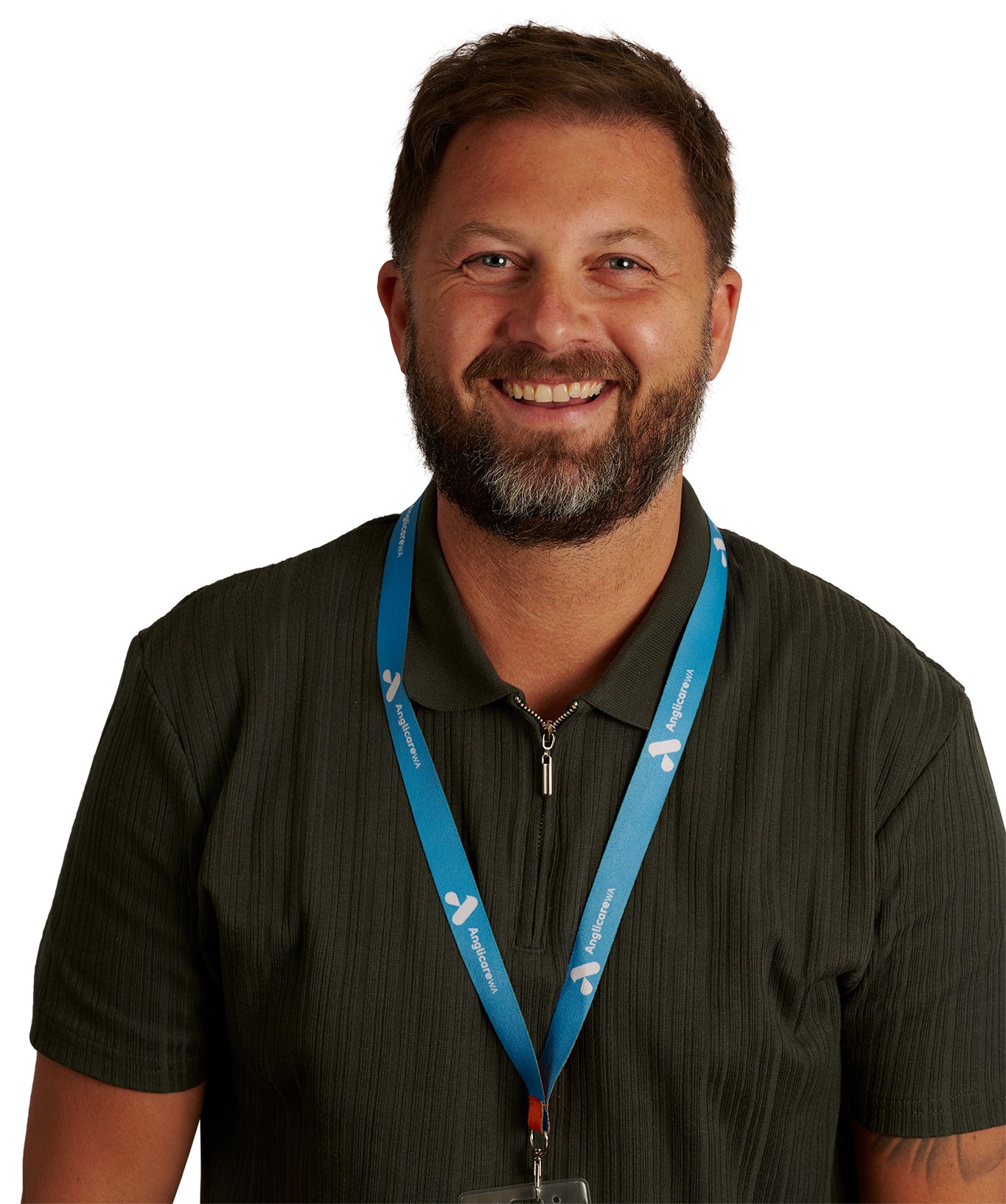
Anglicare WA housing coordinator Nick Mathieson says the Advance to Zero methodology is the most effective system-based model for change.
“We address the support needs of those individuals and start tailoring a suite of services around them so we can effectively start aiming towards housing pathways,” Mr Mathieson said.
“For example, if somebody’s got an AOD issue that's constantly impacting their ability to gain a tenancy then it’s about engaging that drug and alcohol service, but we do that as collective impact, rather than it being one service taking the lead on everything.”
This means that person would not only receive drug and alcohol treatment services, but also mental health services, physical health services, community services, and so on.
As backbone lead agency, Anglicare WA is also responsible for supporting the maintenance and integrity of the local By-Name List in collaboration with the data lead from the Western Australian Alliance to End Homelessness (WAAEH).
This list is a real-time and person-centred database communities used to track and support people experiencing homelessness, and in April 2025, there were 1,934 people on the By-Name List.
"We’ve lost the ‘this is my client’ and it’s become ‘this is our client, how can we all help with this?’ " Anglicare WA housing coordinator Nick Mathieson
According to Mr Mathieson, the list enables better coordination between different service providers, improves data-driven decision-making and accelerates progress toward ending homelessness.
“It’s a database that you need to sign an MOU to access and, with consent, we’ll place people (who are experiencing homelessness) onto this list,” Mr Mathieson said.
“So, if I’m supporting a person, I’d put them on to list, and then others can see that person when they go onto the By-Name List and it just becomes like a collective tool for the community to support people better.
“It’s a way of capturing people by name and allows us to understand who is experiencing homelessness, what their needs are, and how our system is responding, or failing to respond.”
Mr Mathieson said the Advance to Zero initiative was helping change the system by breaking down barriers between organisations and establishing shared accountability.
“Historically, there’s been huge silos, but because of this movement, those silos have been broken down,” he said.
“We’ve lost the ‘this is my client’ and it’s become ‘this is our client, how can we all help with this?’ I believe we can end homelessness and this is the way to do it.
“Some places in the United States have ended homelessness for particular cohorts with [this initiative] … Canada has ended homelessness for three or four cohorts, Port Phillip in Melbourne is very close to ending homelessness for particular cohorts.”
Continuous, collaborative improvement
Anglicare WA leads the Zero Project’s Improvement Team as part of its role as backbone lead agency, with Mr Mathieson serving as chair.
The Improvement Team brings together managers and coordinators from local service providers, local government, and key stakeholders to collaboratively test, refine, and scale solutions that aim to end homelessness in the community.
"Our goal is always to keep people housed and avoid the trauma of homelessness wherever possible." Nick Mathieson
Mr Mathieson said the team made data-driven decisions to implement system change and facilitated continuous improvement and learning across the sector.
“Through regular data reviews and coordinated action cycles, we’ve been able to reduce rough sleeping numbers, improve system flow, and better connect people to housing and support services quickly,” Mr Mathieson said.
“The Improvement Team plays a critical role in building momentum and accountability towards reaching functional zero homelessness in our region.
“We do PDSA (Plan Do Study Act) cycles, where firstly we identify a particular data-driven issue, which is what the By-Name List gives us; lots of data.
“At the back end of the By-Name List, that’s where the Improvement Team sit, in that data side of things, while the Rough Sleepers Coordination Group is about the individual person and guiding them to the right services.”
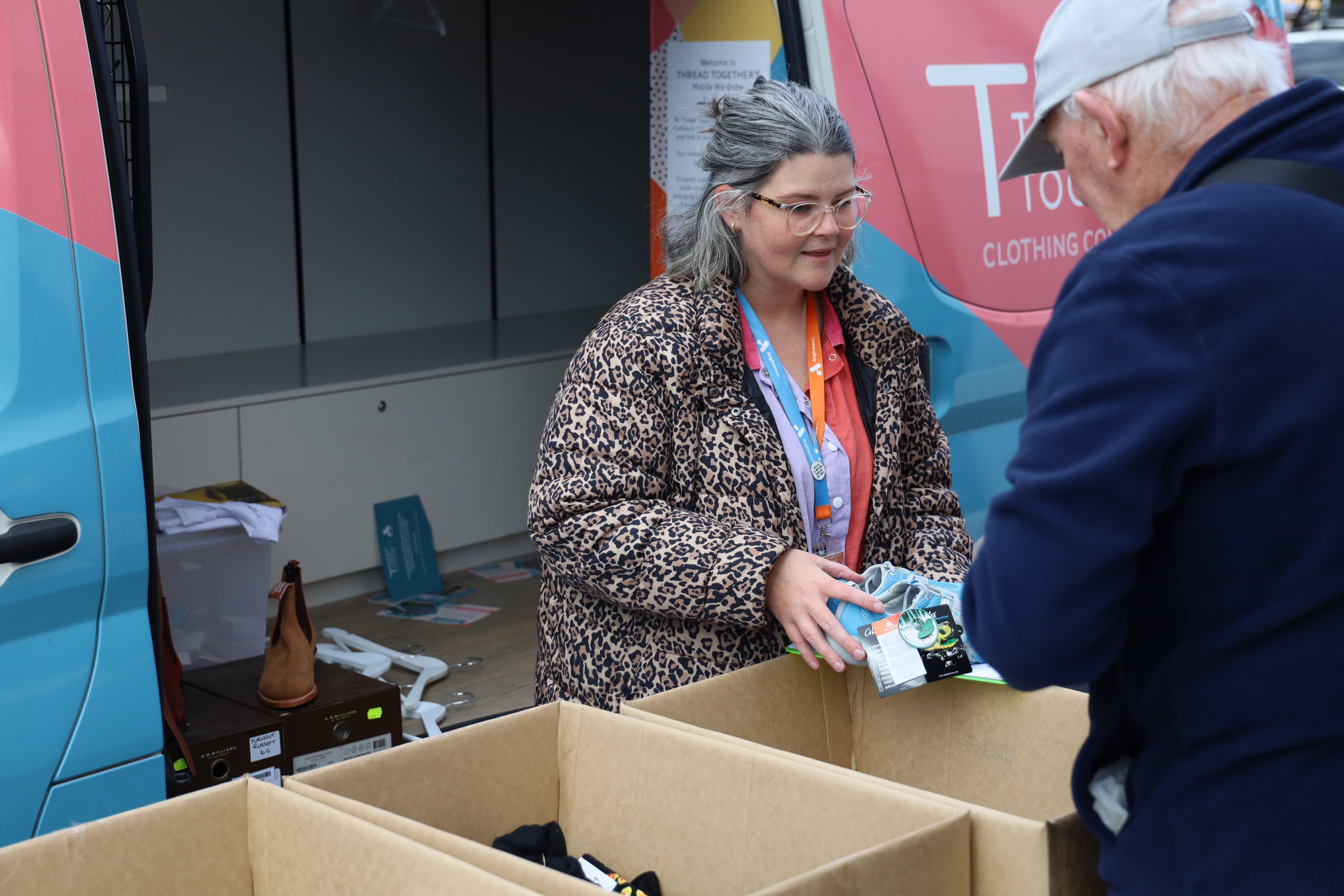
Thread Together partners with fashion retailers to provide new clothing to people in need, helping to restore dignity and self-esteem.
One of the Improvement Team’s greatest achievements took place after the body identified that over 86 per cent of people rough sleeping in Mandurah had a health issue, which led to the introduction of a street doctor for the region in early 2025.
“We worked alongside the City of Mandurah and the Peel Development Commission to get funding to support Black Swan Health to provide a street doctor,” Mr Mathieson said.
“Collaboratively, as an Improvement Team, we worked on that … based off what the data was showing us, so now rough sleepers have somewhere to go and address their health issues. A lot of people are neglecting their health and so that was an area we wanted to focus on.
“At the moment, we’re concentrating on improving the data for youth, family and individuals on the By-Name List, and then also attracting more youth services on board with Advance to Zero.”
Strategies to strike out homelessness risk early
As well as responding to homelessness, Anglicare WA’s programs work alongside vulnerable people to prevent it before it happens.
Early intervention and prevention are key to eliminating homelessness and the Supporting Tenancies Anglicare WA Rockingham (STAR) program – which operates across Rockingham, Kwinana and the surrounding areas – is supporting individuals and families at risk of losing their private rental by intervening before a housing crisis occurs.
A dedicated housing case manager from Anglicare WA works alongside tenants to develop a practical plan to address rent arrears and advocate with landlords or agents.
They also connect people with services that can help resolve the underlying issues impacting their tenancy, whether it’s financial stress, family breakdown, or mental health and AOD concerns.
“Our goal is always to keep people housed and avoid the trauma of homelessness wherever possible,” Mr Mathieson said.
“The STAR program has helped stabilise numerous households by addressing issues early, offering brokerage support where appropriate, and reducing the risk of eviction.
“This targeted, place-based approach allows us to intervene at the right time and keep people safely housed, ultimately reducing inflow into homelessness.”
Anglicare WA is made aware of people at risk of homelessness primarily through referrals, be it self-referral or via real estate agencies.
“We get real estate agencies reaching out to us to say, ‘we’ve got a few people that are a couple of weeks behind rent’, and then we can jump straight onto that because we want to try and sustain that tenancy,” Mr Mathieson explained.
“We’ll advocate and work with the landlords, with the tenant, go through budgeting, pull in financial counsellors, and then also find out why that person found themself in this position and whether there is another support area we need to pick up at Anglicare.”
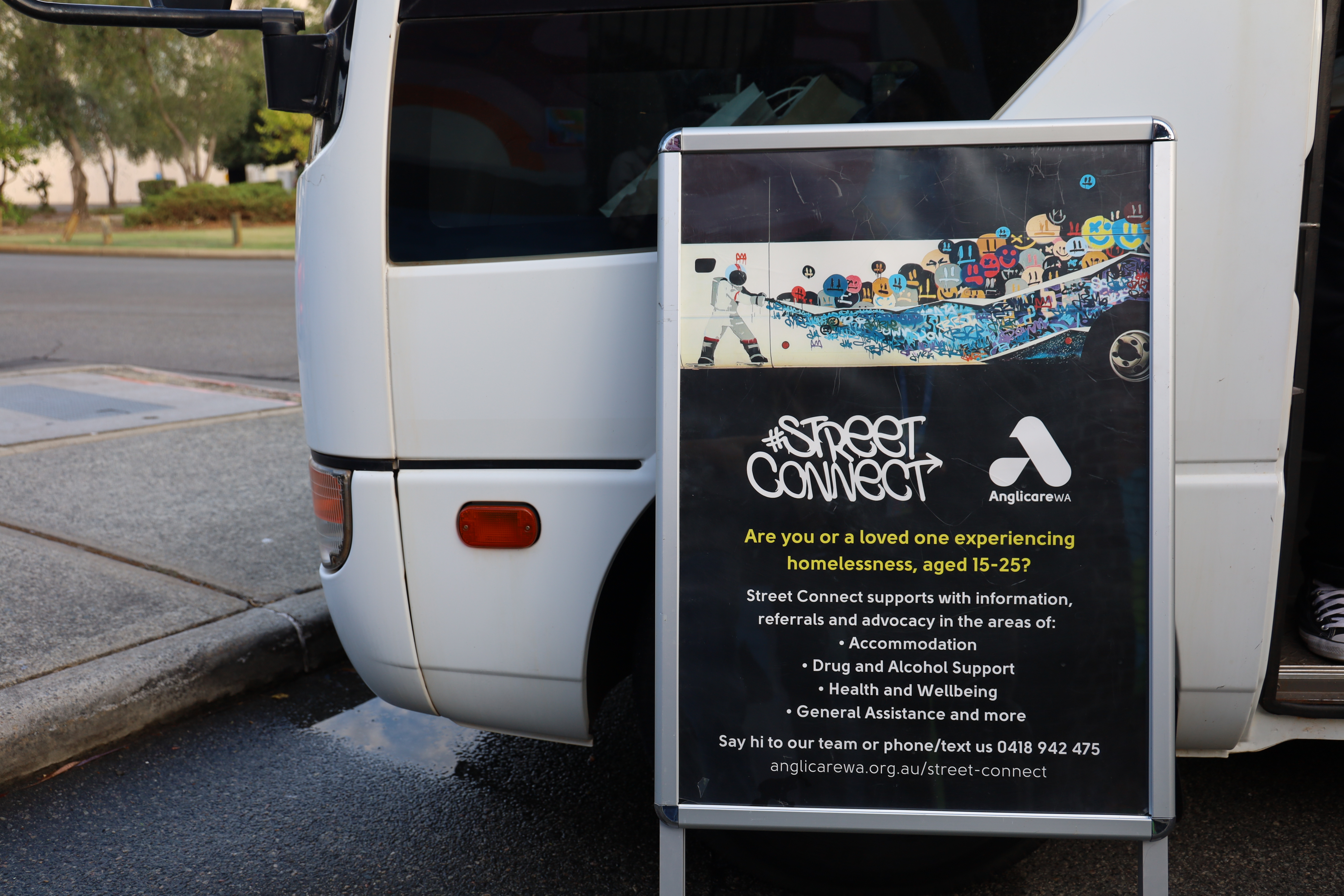
Street Connect is a youth outreach service that provides support, advocacy and referrals to young people who are street present or at risk of homelessness.
Another powerful program delivered by Anglicare WA is its Alcohol and Other Drugs Housing Support, which has provided housing support and addressed barriers for more than 1,000 people since 2010.
Mr Mathieson described the AOD program as one of Anglicare WA’s most impactful offerings.
“What sets it apart is the collaboration we’ve built with drug and alcohol counselling services provider Palmerston, allowing us to jointly support individuals whose housing or homelessness support needs are linked to alcohol and other drug use,” Mr Mathieson said.
“This partnership ensures that recovery and housing are addressed hand-in-hand, rather than in silos, leading to better outcomes for the person.
“It’s easy to say to someone who is rough sleeping, ‘you need to give up drugs, and then you’ll get a house’, but that’s one of the hardest things for somebody to do when they’re rough sleeping.
“It’s a coping mechanism a lot of the time on the streets, but when they’ve taken that first step and said, ‘I need some counselling’, we can then walk alongside them, and that’s where we do see the longevity of outcomes into housing and abstinence from drugs and alcohol.
“That partnership with Palmerston has been ongoing for more than 15 years and we do that in Fremantle, Rockingham and Mandurah. I've got workers in all three places.”
Tackling homelessness from every angle
Anglicare WA has a plethora of other programs that support people experiencing homelessness, all of which Mr Mathieson oversees as housing coordinator.
This diverse portfolio of housing and homelessness programs provide both immediate and long-term solutions.
Anglicare WA’s Family Housing program offers transitional housing for families, providing them with stable accommodation while they work towards long-term, independent living.
"[W]e find that linking them in with their communities is just as important as some of the other aspects of support that we offer." Nick Mathieson
There are currently 13 of these transitional properties, located between South Lake and Girrawheen.
“That’s where families can stay for up to twelve months to receive support for their living skills, or whatever else they may need, whether it’s financial supports or property standards,”
Engaging these families with their local community is an important yet often overlooked aspect of this program.
“We get a lot of Aboriginal and Torres Strait Islander families coming through and CALD (Culturally and Linguistically Diverse) families coming through, so we find that linking them in with their communities is just as important as some of the other aspects of support that we offer,” Mr Mathieson said.
“They can stay there for up to twelve months, depending on when they receive their allocation from the Department of Communities.”
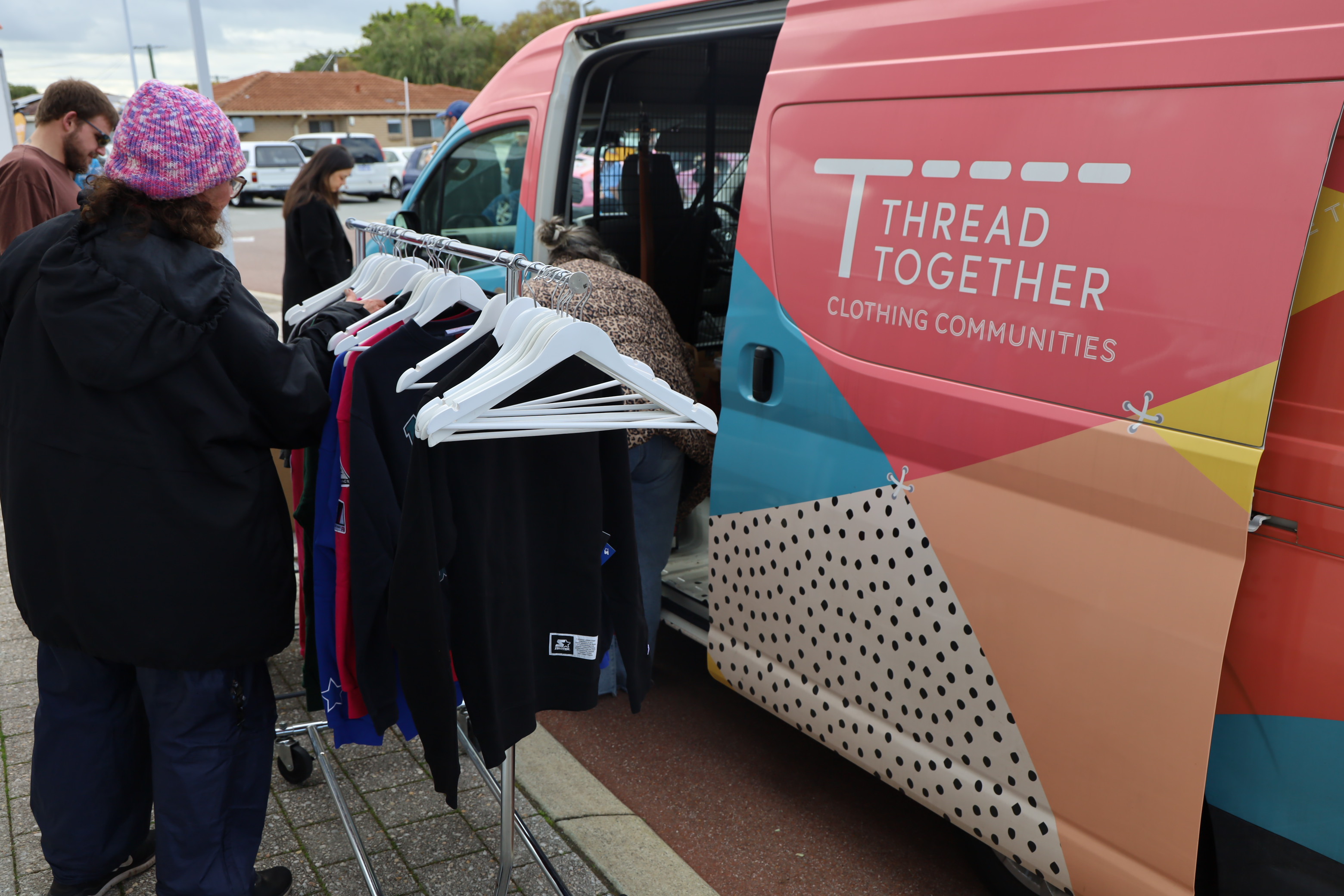
Thread Together collects end-of-line, brand new stock and distributes it through a national network of registered charities and social service agencies
Anglicare WA also delivers a Private Tenancy Support Service to prevent evictions and housing instability through advocacy, practical support and tenancy education to help people maintain their private rentals.
“That program is not early intervention and prevention – it’s when it’s hit crisis and they’re receiving breaches, termination notices,” Mr Mathieson explained.
“That’s where we have to act quite quickly and engage with real estate and community legal services if we need to as well.
“We’re also investing in localised solutions that improve housing sustainment such as the WA Rent Relief Program to provide tenancy support aimed at tackling barriers like rental arrears and tenancy debt.”
Anglicare WA also runs a program called Making Ends Meet to provide financial assistance, support and education to working families.
“That's a philanthropically funded program where a working family can receive up to $3,000 to support their housing needs,” Mr Mathieson said.
“Just might be, school uniforms have come out, the water bill was huge, my tyres needed changing and I’ve just found myself in this position where I’m struggling now, but normally I can do this, it’s just a lot to come out at one time.
“That normally comes in through a financial counsellor or one of the housing case managers, so that we can provide case management going forward.
“A ‘working family’ can even be if their daughter is working one hour a week at Hungry Jack’s, that’s still counted as a ‘working family’, as long as somebody in the household is working and that their budget is in surplus.”
Finally, Anglicare WA has its general homelessness support program working directly with people experiencing homelessness to secure and sustain housing.
“We’ll look at what support needs they’ve got, whether it’s a need that is hindering their opportunity to get into housing, we’ll work on that with them and get that suite of supports around them so that we can concentrate on the housing,” Mr Mathieson said.
Together, all of these programs provide a comprehensive, wraparound response to the complex issues that lead to housing insecurity and homelessness.






